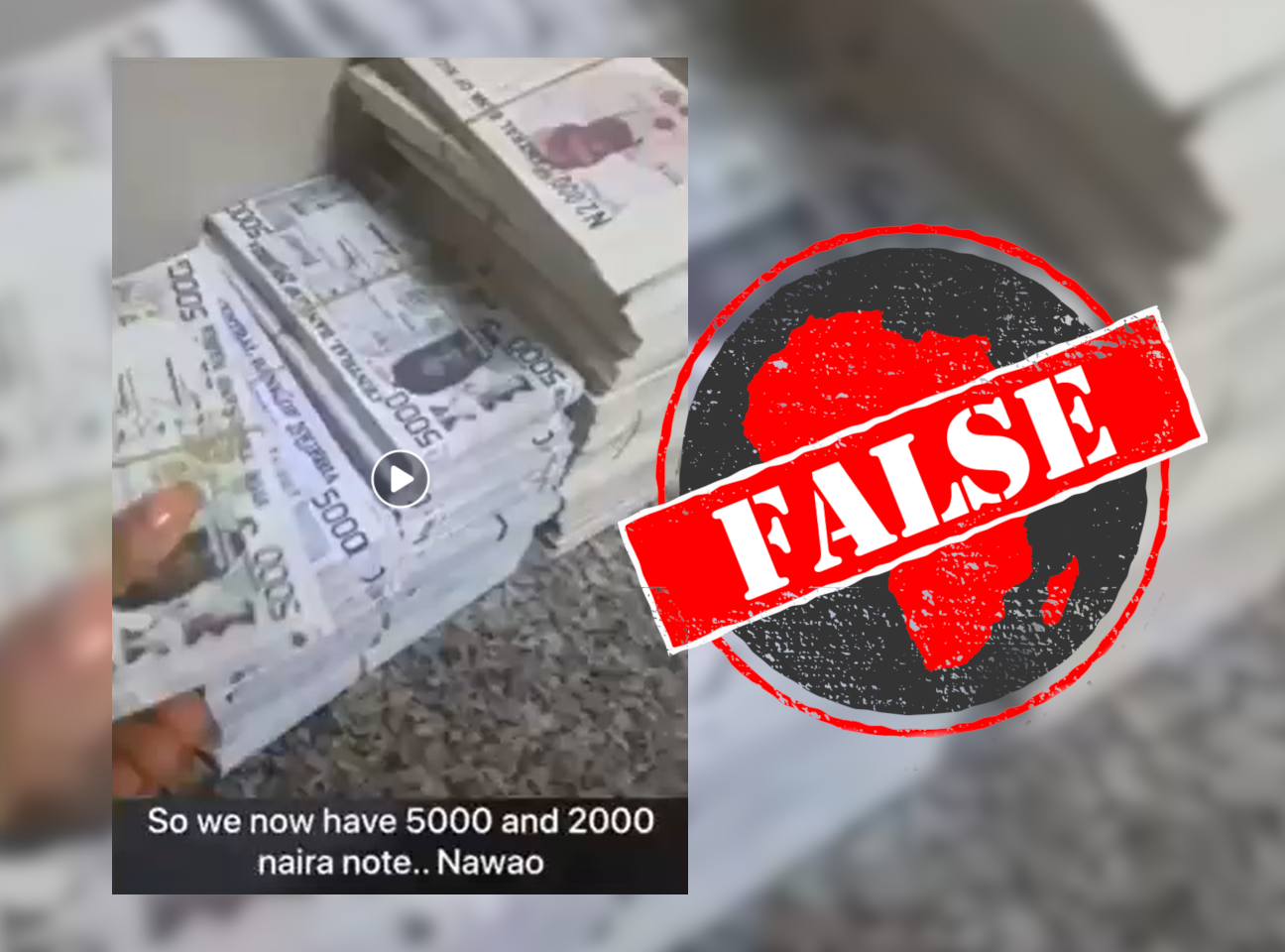A video posted on Facebook in July 2021 shows piles of what seem to be Nigerian naira banknotes. A hand lifts bundles of the notes to the camera, revealing that they have the insignia and name of the central bank and are in denominations of N5,000 and N2,000.
A woman’s voice can be heard. “This is how the money looks like N5,000 notes. He said it is N17 million ... he claims he is a mad man. He said it is N18 million, but we’ve counted it. It is N17 million.”
Text at the bottom of the video reads: “So we now have 5000 and 2000 naira note. Nawao.” It’s been viewed more than 34,000 times so far.
Nigeria has seen high rates of inflation recently. But has its federal government really introduced new N5,000 and N2,000 banknotes?

‘False and fake’
A reverse image search of frames from the video led us to a January 2020 story on the Oriental Times website.
It shows the same video, and says that a man visited a bank in an unidentified part of Nigeria and deposited N17 million in N5,000 and N2,000 banknotes.
In June 2020 the Central Bank of Nigeria said the story was false.
“Videos and pictures of purported circulation of N2,000 and N5,000 banknotes are false and fake,” the bank was reported as saying.
Naira notes and coins are printed by Nigerian Security Printing and Minting and minting companies abroad. Legal tender is only issued by the central bank.
Nigeria’s currency is currently available in three coin denominations – 50k, N1, and N2 – and eight banknote denominations: N5, N10, N20, N50, N100, N200, N500 and N1,000.
There are no legal N2,000 and N5,000 banknotes in Nigeria.
Republish our content for free
For publishers: what to do if your post is rated false
A fact-checker has rated your Facebook or Instagram post as “false”, “altered”, “partly false” or “missing context”. This could have serious consequences. What do you do?
Click on our guide for the steps you should follow.
Publishers guideAfrica Check teams up with Facebook
Africa Check is a partner in Meta's third-party fact-checking programme to help stop the spread of false information on social media.
The content we rate as “false” will be downgraded on Facebook and Instagram. This means fewer people will see it.
You can also help identify false information on Facebook. This guide explains how.


Add new comment